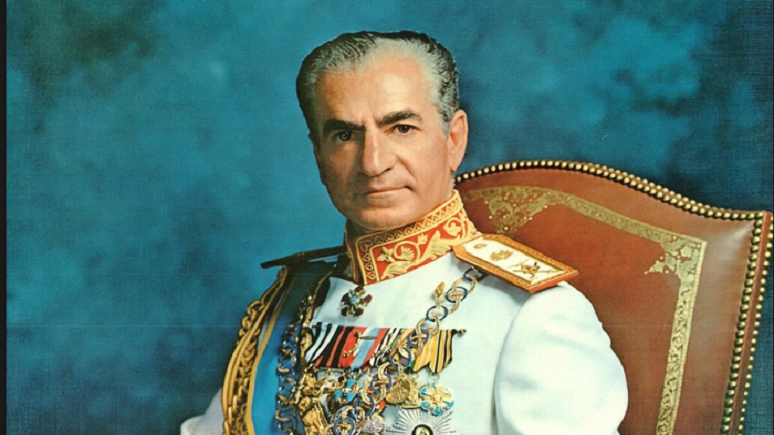


[Want even more content from FPM? Sign up for FPM+ to unlock exclusive series, virtual town-halls with our authors, and more—now for just $3.99/month. Click here to sign up.]
The Iranian regime is a scourge to its own people, Israel and to the West, so to see it fall would be an occasion of celebration. According to Trump:
Iran was “a few weeks away” from developing a nuclear weapon before Israel launched strikes last week…adding that he now seeks “total and complete victory,” not a ceasefire.
But the question of what comes after is another matter. While regime change is not the same thing as nation-building, it is understandable why so many want the current regime to fall. In reading the plethora of reports circulating about the Iranian Islamic regime’s downfall, there is no certainty about what might replace the regime should it fall. One needs also to keep in mind that a majority of Western media has long become activist media, and given their anti-Israel bias, they lack credibility in reporting and analysis.
French President Emmanuel Macron also weighed in, but he is a leftist globalist who has shown little good will to Israel given the historic truth about its deadly enemies. Macron is not so fond of his own country, either, given his open-door immigration policies. He has not protected Western interests; also, he has a habit of calling for “ceasefire” whenever Israel justifiably and prudently retaliates against its enemies and is winning. He did ask one reasonable question, however, that highlights the uncertainly of the fall of the Iranian regime: “Does anyone think Iraq in 2003 or Libya a decade later were good ideas?” Although a valid point for discussion, every situation is different. Iraq and Libya were not nuclear states, and Iran is perhaps the only country where many of its people were celebrating Israeli attacks on their own country.
As Iran continues to grapple with political unrest and calls for reform, Reza Pahlavi, the crown prince of Iran, is an important figure in discussions and debate about the future of Iran. His role could become increasingly central as he provides needed insight, direction and even a possible future role for himself in an Iran free of its current regime. Not only has Netanyahu stated that Israeli attacks “pave way for Iran regime change,” but Pahlavi is calling for regime collapse.
In 2013, Reza Pahlavi established the National Council of Iran in Paris, comprised of an exiled opposition group. He now lives in America, where he has long been an active voice for regime change in Iran for secularism, human rights and democracy. That vision is a solid one, which will certainly be backed by the dissidents of Iran, by Israel and the US, unlike in the cases of Libya and Iraq, where regime-change efforts lacked vision and a solid plan.
The well-known Iranian-Canadian human rights advocate Shabnam Assadollahi, who was arrested and imprisoned at age 16 for eighteen months in Iran’s most notorious prison, Evin, gave me a statement on Crown Prince Reza Pahlavi’s role in leading Iran’s transition:
Crown Prince Reza Pahlavi is a legitimate and unifying figure, widely recognized by Iranians—particularly those inside Iran—as the trusted leader to guide the country through the critical transition following the fall of the Islamic Republic’s occupying regime. For decades, millions of Iranians have upheld the memory and legacy of the Pahlavi era not only with nostalgia but with renewed calls for national revival, justice, and secular governance.
During nationwide uprisings, particularly in 2017, 2019, and 2022, powerful chants such as «رضاشاه، روحت شاد» (“Reza Shah, may your soul be blessed”) and «ولیعهد کجایی، به داد ما بیایی» (“Crown Prince, where are you? Come to our aid”) resounded across cities and villages alike—despite brutal repression. These are not empty slogans; they are a direct mandate from a people yearning for principled leadership and national sovereignty.
The Iranian people have called upon Crown Prince Reza Pahlavi to lead the transitional phase and prepare the country for a genuinely free, fair, and democratic election—one conducted without interference from the United Nations or any foreign entities whose historical involvement has either empowered theocratic tyranny or compromised Iran’s independence. The future of Iran must be decided by Iranians alone.
Crown Prince Reza Pahlavi has repeatedly emphasized his commitment to secular democracy, human rights, and unity across ethnic and religious lines, positioning him as a transitional figurehead—not for personal power, but for the restoration of a democratic republic or constitutional monarchy, as freely chosen by the Iranian people.
Now more than ever, as the occupying regime loses its grip, the people’s voice is clear: the path forward must be rooted in national dignity, historical continuity, and self-determination. Crown Prince Reza Pahlavi embodies these principles and stands ready to serve—not rule—the people of Iran in this historic transformation.
Meanwhile, Secretary of Defense Pete Hegseth addressed speculation during a press briefing with Joint Chiefs Chairman General Dan Caine, that the recent U.S. airstrikes on Iran were not aimed at regime change. Hegseth says the operation was solely focused on neutralizing nuclear threats. The comments followed Trump’s announcement of “very successful” precision strikes on Iranian nuclear sites in Fordo, Natanz, and Esfahan.
America is the only country with the B-2 plane that is capable of carrying the “Massive Ordnance Penetrator” — with the ability to penetrate the mountain under which the Fordo centrifuge operation was hidden.
